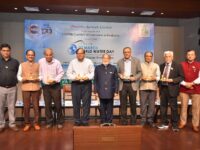MotoGP Bharat to flag off with an investment of ₹250 crore

FairStreet Sports Pvt. Ltd, the organizer of the MotoGP Bharat race, has committed Rs250 crore for the premier Grand Prix motorcycle racing event set to be held in Greater Noida.
The company has raised $10 million (about Rs82 crore) from institutional investors towards financing of the event and has put in the remaining amount organically, Pushkar Nath Srivastava, its chief operating officer and one of its founders, said in an interview.
The investment comprises a wide range of aspects, such as securing event rights, organizing it and marketing expenditures. A significant part of the funds—around Rs150 crore—is for organizing the event.
MotoGP—which features 22 riders from 11 teams, with bikes supplied by Honda, Yamaha, KTM, Ducati and Aprilia—is being telecast in India on Viacom18’s OTT platform JioCinema and its linear channel Sports18 as part of a three-year media rights deal. The Indian round—a three-day event—will be held in September at the Buddh International Circuit, Greater Noida.
The agreement was signed between FairSteet and sports management and marketing firm Dorna Sports SA for seven years. Dorna is the commercial rights holder for Grand Prix motorcycle racing globally.
The organizers of MotoGP Bharat hope that viewer interest in the event is not going to wane by the second or third year and subsequently nosedive.“We considered and studied some of these issues in detail, and we are confident that there will be a lot of viewer interest, not just in the first year but subsequent years, too. We have taken their learnings and ensured that we work with relevant authorities to sort out potential issues. If all goes well, we may break even by the end of year one.”
While Srivastava did not disclose the amount of investment by the Uttar Pradesh government as an associate partner as part of its initiatives under Invest UP and UP Tourism, he confirmed the state’s involvement.
About 30% of tickets for the event have been sold and a lot of this is either for the entry-level category or the most expensive ones priced upwards of `30,000 a seat, the organizers said.
Considering that India is the largest motorcycle market worldwide, FairStreet hopes the event will generate natural interest.
Joy Bhattacharjya, sports expert and CEO at Prime Volleyball League, said that spends of `150-300 crore on an event like this is not an enormous amount when compared to F1, which has far higher spends.
It is not necessary that this event’s success will be based on the kinds of television ratings it will get. It will be able to attract premium advertisers because it is a niche sport and a lot of brands targeting men would like to advertise at this event.
“India is the kind of country where getting in motorcycle racing could work and it is a less expensive proposition with not-as-ruinous duties that were lumped onto F1 (Formula One). It could do well in the long run, but they are unlikely to break even in the first couple of years,” he said.
The company is looking to bank on the fact that India is still largely focused on cricket and outside of that there is a gaping hole in the sports ecosystem. Several new leagues have come up in the last decade or so and more recently in the last few years. However, it has been difficult for many companies and broadcasters to truly make a mark.
But since there are several biking enthusiasts in India, it could be a longer-term game where automobile companies may also find this a lucrative advertising opportunity which could potentially spell success. If the marketing is right, then it could translate into viewership since most money generally resides in the media rights of a sports property.
Meanwhile, fans are hoping that MotoGP won’t have the same issues as F1.
It is important to note that typically Dorna as a business sells its rights directly in the countries that it is present in (about 17). But in India, it has refrained from doing so and has come through the local partner. This could be because of trouble in the past for a previous big-ticket organizer. The Indian Grand Prix of F1, which was held at the same venue between 2011 and 2013 at an approximate cost of $400 million at the time, ran into serious trouble with the local tax authorities as the government of Uttar Pradesh argued that F1 was not a sport but entertainment, and that it must be taxed in the same way.
After the Supreme Court intervened and ruled against F1 in 2017, the tax bill was estimated to be around $14.8 million. The Formula One World Championship and Jaypee Sports International Pvt. Ltd (then owner of the Buddh circuit) were directed to pay this in order to continue racing in India.
This seriously damaged the reputation of the Indian Grand Prix, and the race was not held again after 2013. This was also due to falling ratings and reduced viewer interest, and not just the tax burden. The tax is yet to be paid, too.
Naman Suri contributed to this story.

Atul Tiwari is a seasoned journalist at Mumbai Times, specializing in city news, culture, and human-interest stories. With a knack for uncovering compelling narratives, Atul brings Mumbai’s vibrant spirit to life through his writing.





